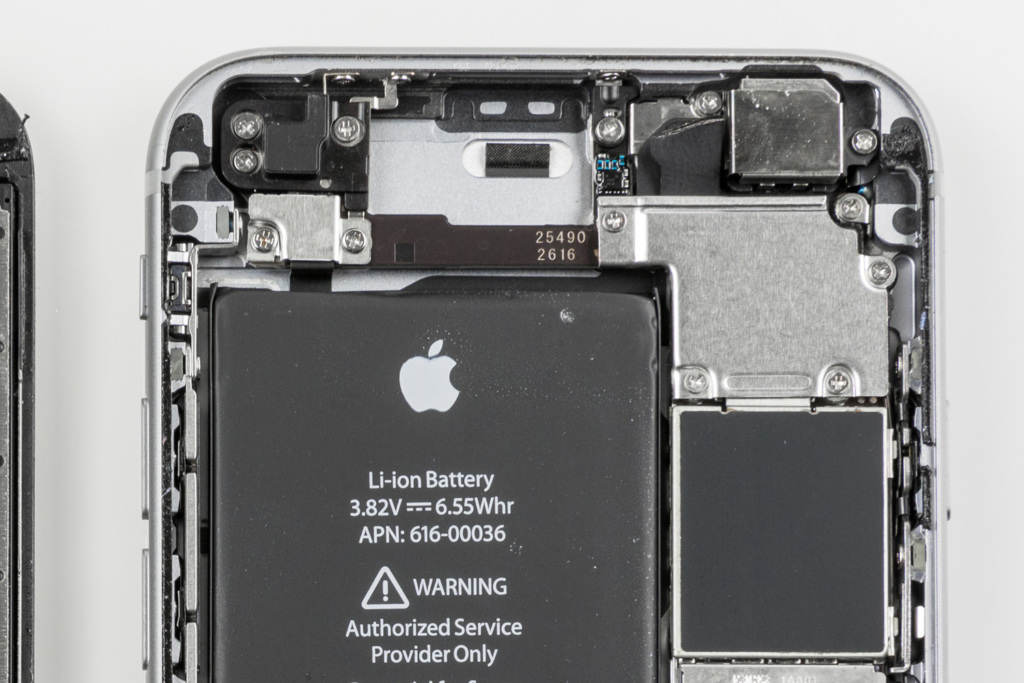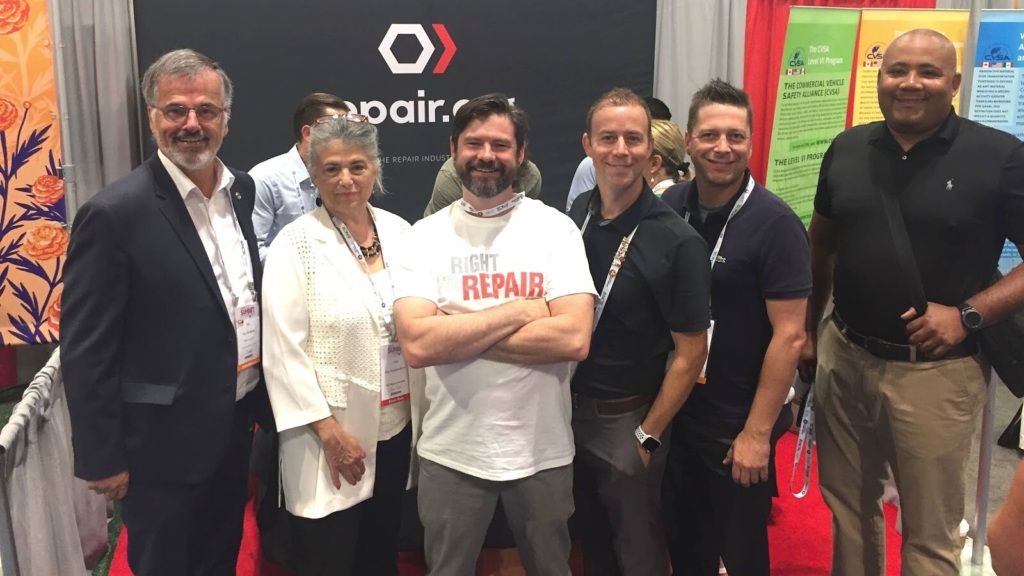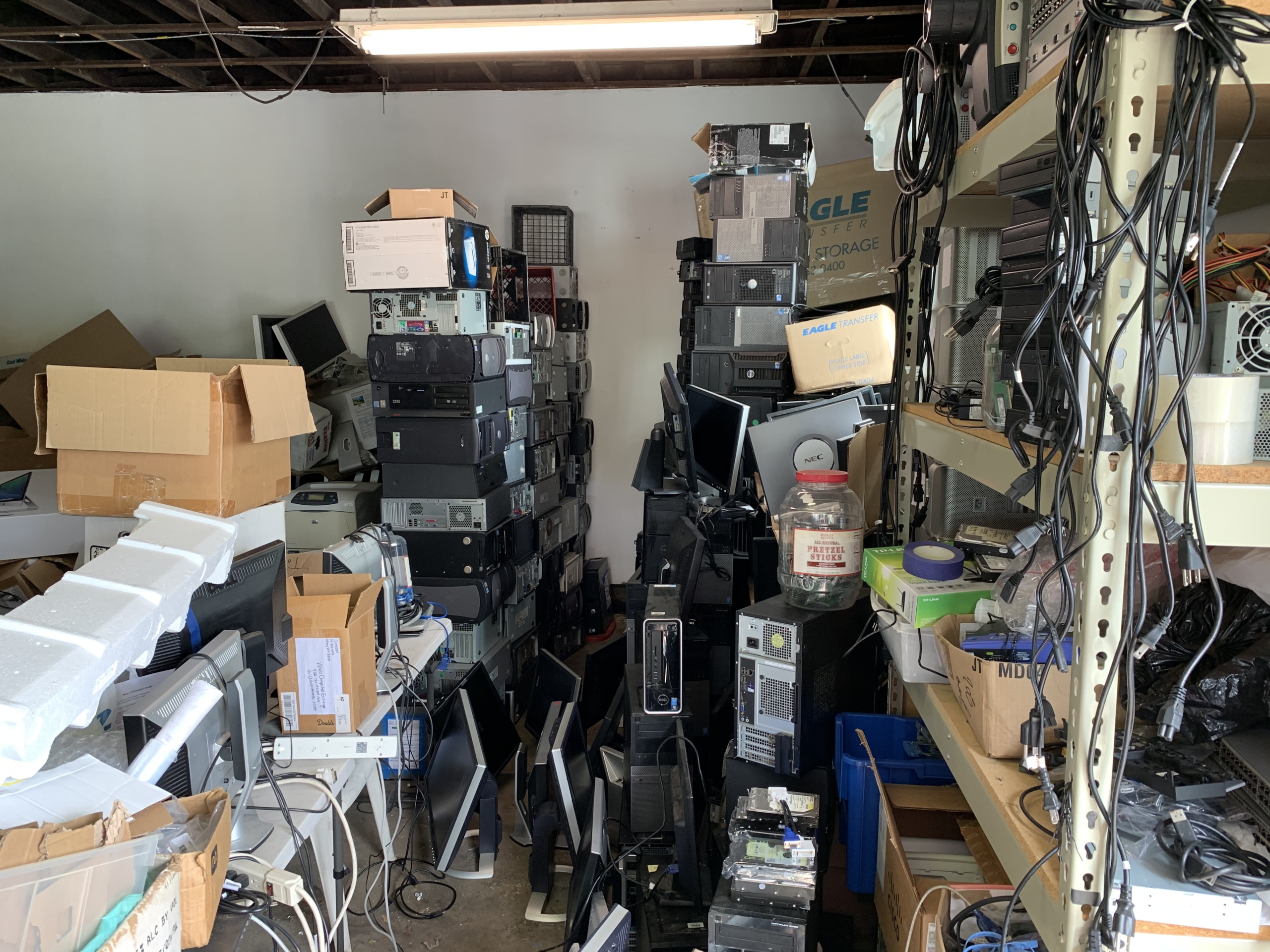
The 7 Most Troubling Trends in Tech
As companies debut new gadgets at this year's Consumer Electronics Show (CES), we’re highlighting anti-consumer trends we’ll see in this year’s products.

In recent years, CES, the world’s largest consumer electronics trade show and one of the biggest technology events of the year, has brought us products such as biometric spy light bulbs, single-use disposable hair dye pods and alarm clocks that record the sounds of your sleeping child. As PIRG and other tech watchdogs have monitored the rollout of these gadgets, we’ve asked the obvious question: Who asked for this?
Every CES brings some exciting new products, but not all of the “innovations” on display improve our lives. Many fads which might be all the rage for manufacturers leave us mostly enraged.
Alongside PIRG’s allies JerryRigEverything, iFixit, Repair.org, EFF, Consumer Reports and SecuRepairs, we’ll be awarding badges of shame during the third-annual “Worst in Show” Awards for products showcased at CES.
We’ll livestream the awards show at 9:30 a.m. PT on Friday, January 6, 2023, and will highlight products debuted at CES which we feel are especially terrible. We have categories for the worst in privacy, security, environmental impact and repairability and a new category to honor the truly useless: the “Who asked for this?” award.
Attending CES in person? Print off our new bingo card and join us in finding products that exemplify what’s wrong with too many new gadgets.

Photo by Staff | TPIN
Here are the top seven troubling trends to keep your eye out for at CES.

Photo by Raimond Spekking | CC-BY-SA-4.0
-
Repairability: You aren’t allowed to fix it
You might be familiar with longstanding issues that keep us from fixing our stuff, from glued-in rechargeable batteries that can’t be replaced to impossible-to-disassemble devices with proprietary screw heads. Last year, we awarded Worst in Show in this category to a long-range, futuristic-looking electric vehicle from a car line that tries to keep you from opening the hood, by hiding the release to do it, and offers no way to keep the hood open.
Now, repair-unfriendly companies have begun a new trend: using software to thwart repair. This year we’ll see more parts-pairing restrictions, by which manufacturers require software authorization in order to replace parts. As iFixit explains, “the consequences vary: you could get a notification, see certain functionalities voided, or have something work initially only for it to break after an update.” These restrictions not only thwart DIY repairs, they can force you to buy Tesla tow hitches in order to use Trailer Mode for your car.
-
Privacy: It needlessly collects and shares personal information
Last year’s category winner, was a lightbulb that monitored your heart rate and body temperature, or “behaviors,” in a way that all but guaranteed a data breach. Expect to see more devices that record video in our homes, track our comings and goings, and share our information with third-parties. No consumer wants devices that disperse their personal information to the highest bidder—if you ask us, it’s pretty darn creepy.

Photo by Mike Prosser | CC-BY-SA-2.0
-
Environmental Impact: Pods that trash the planet
Electronic waste is the fastest growing waste stream in the country and around the world. Tech companies could be using their innovative genius to design sustainable solutions but some dream up silly ways to make things more disposable so we have to keep buying new stuff.
Can we just cut it with the disposable pods already? We’ve thrown away enough coffee pods to encircle the Earth 10 times. Last year, at CES we saw a pod-using hair dye product introduced. Companies should be responsible for the waste they produce, and pods are as wasteful as you can get. It may be profitable to force customers to keep buying more pods, but it’s an ecological disaster. We need to stop podifying everything.
-
Security: Adding more attack vectors to already insecure products.
The unfortunate reality is millions upon millions of devices connected to the internet lack basic protection from hackers, identity thieves and cybercriminals. As much as manufacturers say they care about consumers’ cybersecurity, the proof is in the pudding, and many companies sell products that lack security features.
We don’t have the capacity to evaluate the security of brand new devices, but we often find ourselves alarmed at companies who, on the heels of a huge security oversight, announce a new product which would make a lack of security even more damaging. For example, last year we gave the award in this category to a fully autonomous tractor, which was announced while the same company’s current models were still vulnerable to multiple attacks.
-
Rent to never own: You have to pay a subscription fee after you already bought it
Rather than buy a product once, wouldn’t you rather buy it, and then keep paying every month to keep it working as long as you own it? Us neither. Unfortunately, many companies guarantee steady profits by selling mandatory “subscriptions” to customers who thought they bought their products outright. More hardware devices have secret “gotcha” rent arrangements, which means you can forget about repair, reuse, or tinkering, because while you don’t have the rights to modify the device at all, you can’t even use the device if your subscription lapses.

Photo by David Berkowitz | CC-BY-2.0
-
Internet of S%^t: It’s connected to the Internet of Things for no reason
Fans that connect to offshore servers, light bulbs with sensors that collect your biometrics, and microwaves that get bricked during firmware updates: not every device we own needs to connect to the internet. Unnecessary Internet of Things devices invade our privacy, reduce our security and create more problems than they solve. You should be able to use your fridge, microwave and lights if your internet goes out. My “dumb” fridge keeps my food plenty cold, thank you very much.






